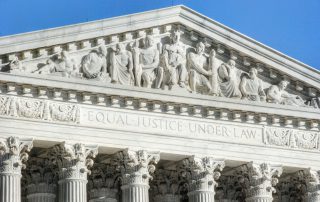SCOTUS Holds that Third-Party Defendants Cannot Remove Class Actions from State to Federal Court
On May 28, 2019, in a 5-4 decision, in which Justice Thomas sided with the Court’s “liberal” justices, the Supreme Court held in Home Depot USA, Inc. v. Jackson that a third-party defendant cannot use the Class Action Fairness Act (CAFA) to remove a class action from state to federal court.
This case began when Citibank filed a debt-collection action in state court in North Carolina against respondent George Jackson, who borrowed money on a Citibank credit card to buy a home water-filtration system. In response, Jackson filed a counterclaim against Citibank and a third-party class action […]






